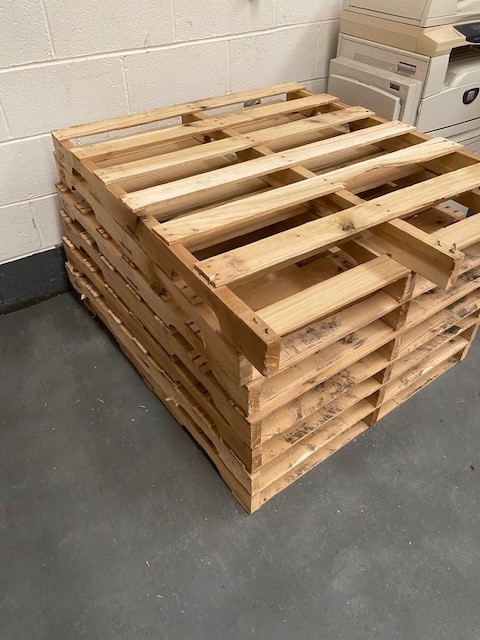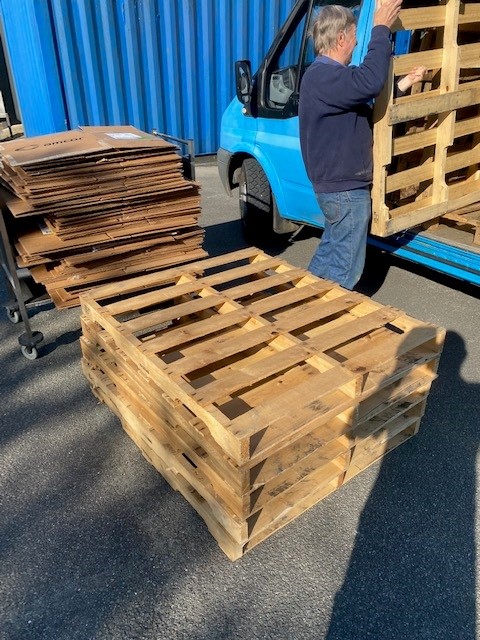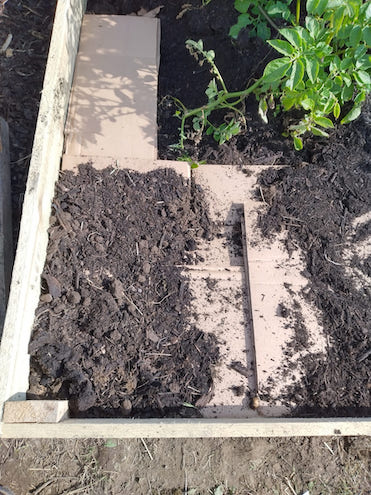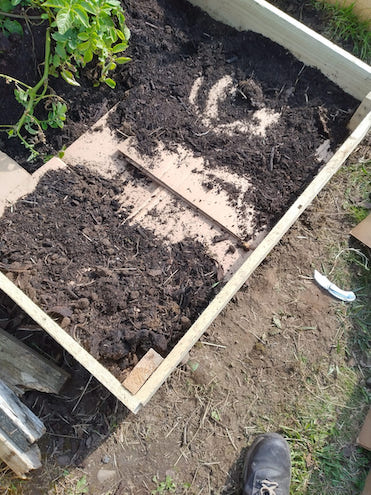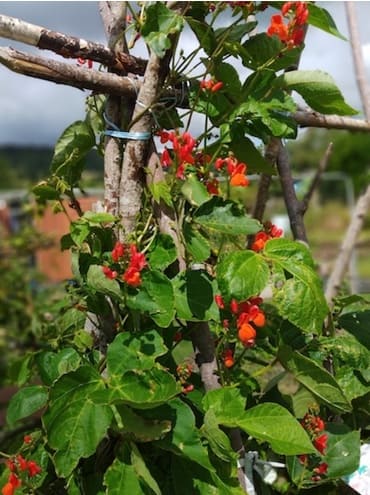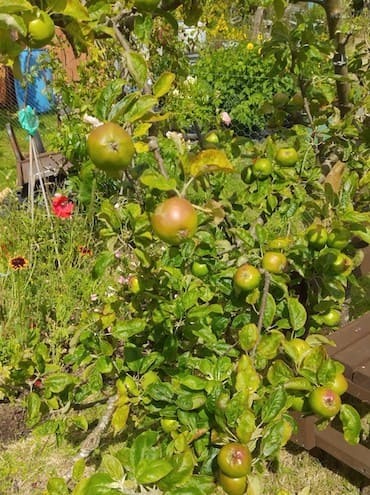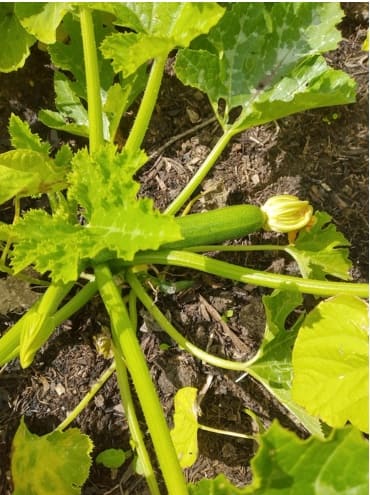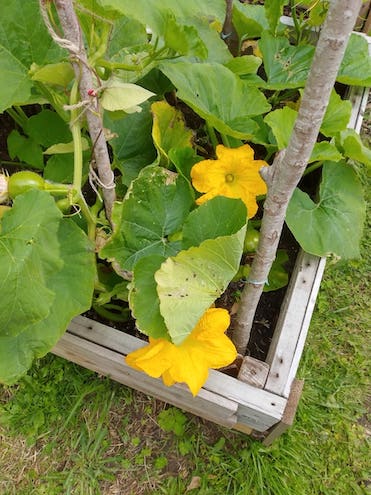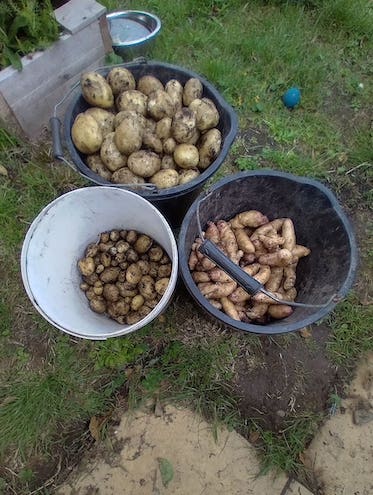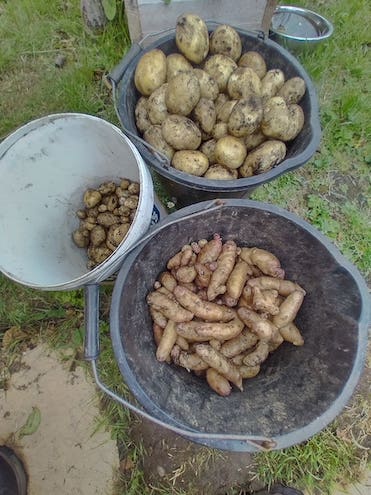Bimeda is committed to ‘proactively looking for opportunities to implement sustainable practices for the management of waste, including recycling, re-using and repurposing waste’.
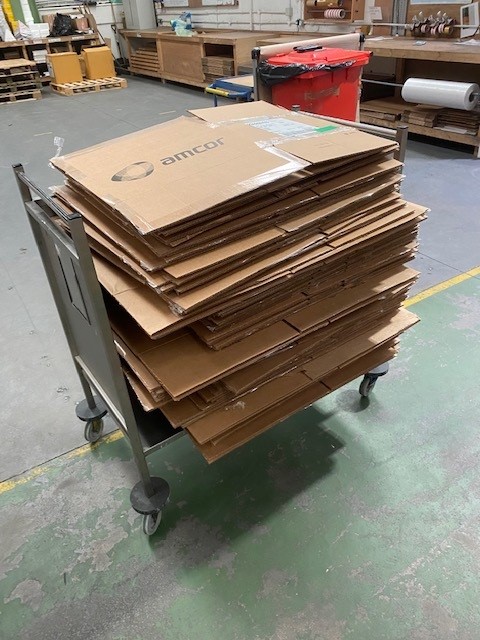
Bimeda UK Repurposes Waste Cardboard and Pallets For Community Allotment Use
The team at Bimeda UK take this commitment very seriously. An element of waste that arises through normal business operations is brown cardboard boxes, which are used for product deliveries into Bimeda. Another is a particular type of wooden pallet, which the facility receives some deliveries on. This pallet type is commonly used in some regions, but is not suitable for use in our UK facility.
The UK team were keen to find a way to repurpose these materials and made contact with a local community allotment project. Members of the allotment practice ‘no dig’ vegetable growing, whereby brown cardboard is placed over soil to kill weeds. The cardboard blocks the light and kills any weeds in the soil. The vegetable grower then plants their seedlings in compost, which they have placed on top of the cardboard. The result is lots of healthy vegetables, without any weeds.
The no dig method means that it is not necessary to ‘dig over’ soil, to remove weeds. Digging over soil in this way can actually damage soil structure and ecosystems. Less digging allows the natural soil organisms and bacteria to work undisturbed, creating a structure and environment that allows plants to thrive.
The Bimeda UK team were pleased to be able to find a responsible way to dispose of this cardboard waste and to contribute to the community’s no-dig growing program.
The donated wooden pallets are repurposed for various projects, such as creating raised vegetable beds.
The photos of the allotments show some of the fruit and veg that the community have enjoyed growing. The Bimeda team were very happy to be able to contribute to this community initiative.







